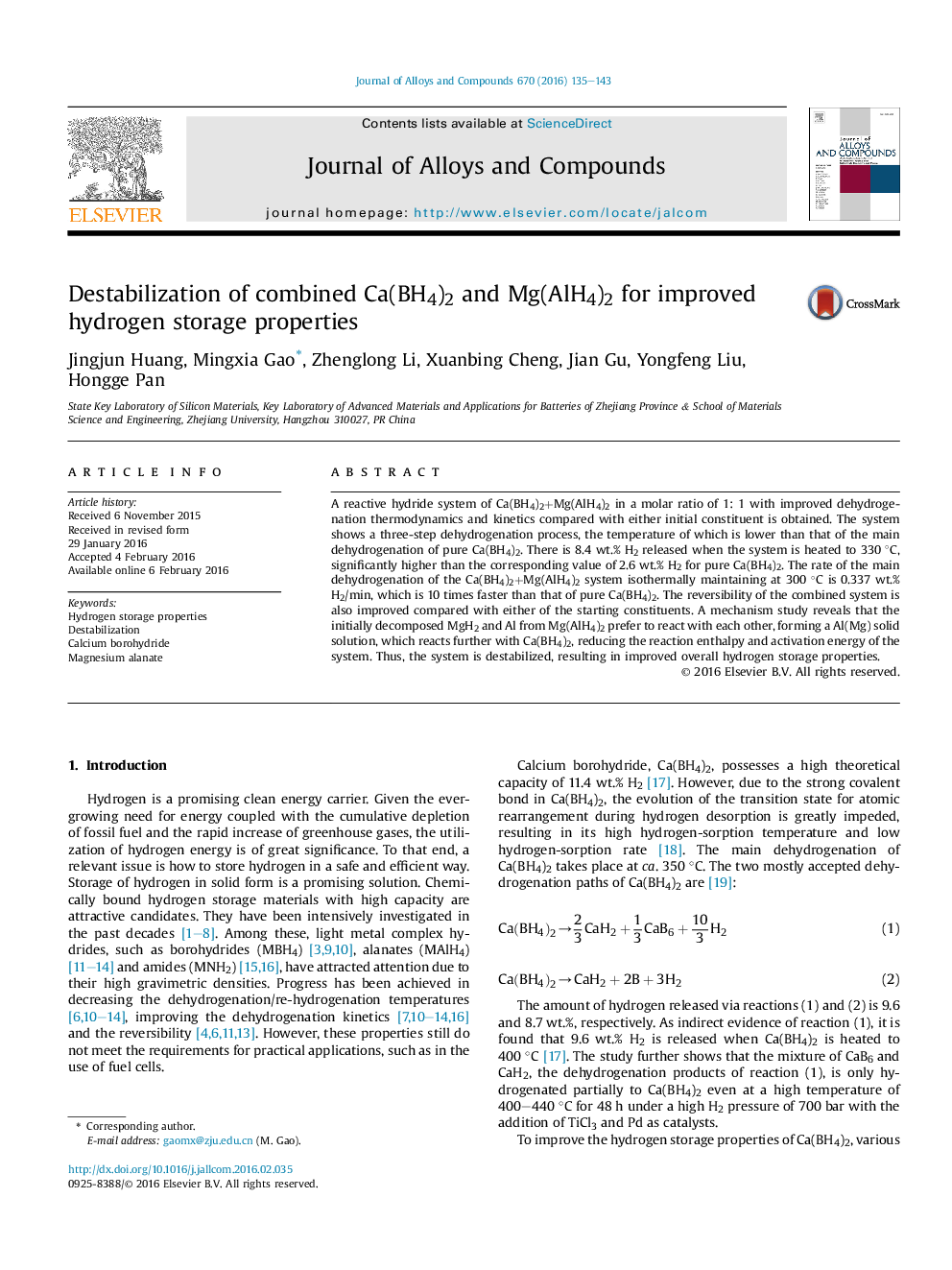| Article ID | Journal | Published Year | Pages | File Type |
|---|---|---|---|---|
| 1606286 | Journal of Alloys and Compounds | 2016 | 9 Pages |
Abstract
A reactive hydride system of Ca(BH4)2+Mg(AlH4)2 in a molar ratio of 1: 1 with improved dehydrogenation thermodynamics and kinetics compared with either initial constituent is obtained. The system shows a three-step dehydrogenation process, the temperature of which is lower than that of the main dehydrogenation of pure Ca(BH4)2. There is 8.4 wt.% H2 released when the system is heated to 330 °C, significantly higher than the corresponding value of 2.6 wt.% H2 for pure Ca(BH4)2. The rate of the main dehydrogenation of the Ca(BH4)2+Mg(AlH4)2 system isothermally maintaining at 300 °C is 0.337 wt.% H2/min, which is 10 times faster than that of pure Ca(BH4)2. The reversibility of the combined system is also improved compared with either of the starting constituents. A mechanism study reveals that the initially decomposed MgH2 and Al from Mg(AlH4)2 prefer to react with each other, forming a Al(Mg) solid solution, which reacts further with Ca(BH4)2, reducing the reaction enthalpy and activation energy of the system. Thus, the system is destabilized, resulting in improved overall hydrogen storage properties.
Related Topics
Physical Sciences and Engineering
Materials Science
Metals and Alloys
Authors
Jingjun Huang, Mingxia Gao, Zhenglong Li, Xuanbing Cheng, Jian Gu, Yongfeng Liu, Hongge Pan,
